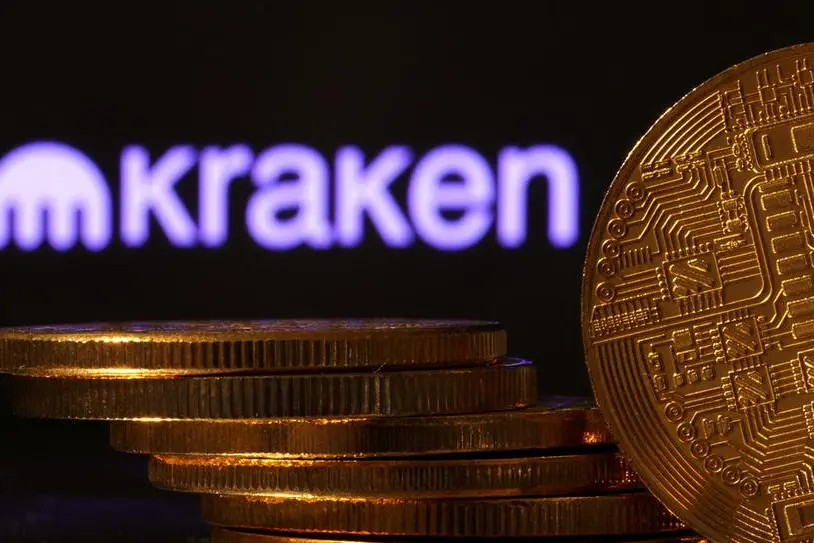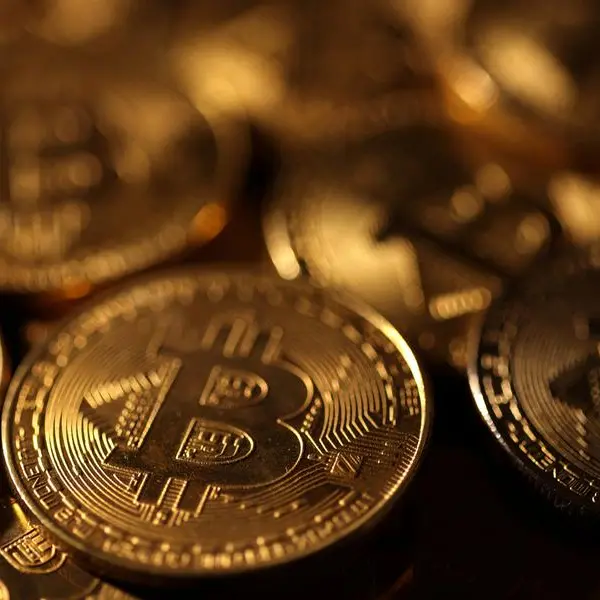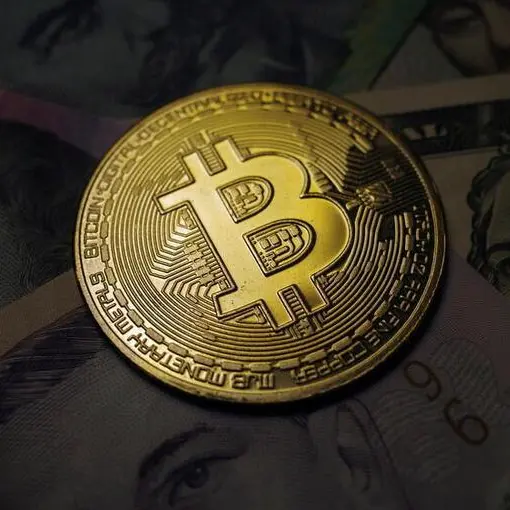PHOTO
The Nigerian government’s on- going dispute with cryptocur- rency exchange, Binance, has highlighted ongoing challenges over crypto regulation in Africa. Individuals and even corporations have looked to digital currencies as a solution to shortages of hard currency but regula- tors have failed to keep up with increasing transaction volumes and growing popu- larity. The industry’s energy consumption also poses a challenge for the African power sector but it remains to be seen if the overall impact here will be positive or negative.
For the uninitiated, cryptocurren- cies are a form of digital currency but in contrast with central bank digital cur- rencies, they are not backed by a specific country or controlled by
For the uninitiated, cryptocurrencies area form of digital currency but in contrast with central bank digital currencies, they are not backed by a specific country or controlled by a centralised financial institution. They are stored in a digital wal let that users keep on a computer or smartphone and can be used to complete a wide range of transactions, as long as the seller or provider is willing to accept them.
Wallets can be either hot or cold. Hot wallets are connected to the internet to allow easy use, while cold wallets are kept on USBs, com- puters or other physical devices for longer-term storage.
Unlike with standard digital payments, no third parties are in- volved in enabling transactions, which are made peer-to-peer and then permanently recorded on a blockchain* database, which is situated in various locations around the world. Cryptocurrencies are attractive to those who think decentralisation can bring fi- nancial freedom.
(*Blockchain is a digital database where transactions are cryptographically stored on linked sequential data groups - also known as blocks. Unlike conventional databases that store information on one server in one loca- tion, this decentralised and distributed ledger stores identical copies of data across a global peer-to-peer network.)
Bitcoin, which was launched in 2009, is the most famous cryptocurrency but there are thousands of alternatives, in- cluding Litecoin and Ripple. Blockchain- based cryptocurrencies, such as Bitcoin, are acquired either through transactions or created through crypto mining, which involves solving very complicated equa- tions. Each crypto transaction is added to the blockchain by volunteers, who them- selves are rewarded with Bitcoin.
These equations are becoming stead- ily more complicated to rein in the amount of Bitcoin in circulation. The number of Bitcoin that can be mined has been capped at 21m, with most already in circulation.
When the Bitcoin blockchain reaches a certain size, roughly every four years, the number of Bitcoins given to miners who successfully validate transactions is cut in half. As the value of Bitcoin has risen, trades have taken place in ever smaller fractions. At present, the smallest unit of currency is the Satoshi, which is 100 millionth of a Bitcoin.
The sector may get a boost from US President Donald Trump’s strong sup- port for crypto, with Bitcoin breaking the $100,000 barrier for the first time after he successfully secured a second term of office. Trump has now pledged to turn the US into the “crypto capital of the planet”, in sharp contrast with his description of Bitcoin as a “scam” in 2021. Trump has said that he would like to see Bitcoin held as a reserve asset but this strategy has been ruled out in some other jurisdictions, including by South Africa’s central bank governor, Lesetja Kganyago.
Some governments have heavily regu- lated, taxed or restricted cryptocurrency, including China, where the People’s Bank of China banned all crypto transactions in 2021. India imposed a 30% tax on crypto income in 2022, while Japan imposes tax-es on a sliding scale of 15-55% on profits from crypto trading.
Crypto downsides
One downside of crypto is that values tend to fluctuate very wildly. Stablecoins have been devised to reduce the level of volatility by linking their value to that of another asset, such as a hard currency, although there have also been spectacular price crashes here.
Stablecoins linked to the dollar, such as USDC and USDT, have gained some popularity in sub-Saharan Africa because of the lack of access to actual US dol- lars and other hard currencies, plus wide fluctuations in the values of some local currencies. They have even become more popular for international remit- tances among Ethiopians work- ing overseas who want to transfer money to family members at home.
According to blockchain analy- sis firm Chainanalysis, stablecoins account for about 43% of crypto transactions by volume in sub- Saharan Africa. To take one ex- ample, it recorded a 180% increase in stablecoin transfers in Ethiopia in the year to June 2024, probably as a result of currency restrictions, which eased slightly in July 2024 after the government relaxed cur- rency regulations as part of its ne- gotiations with the IMF.
Another disadvantage is that crypto mining is very energy- intensive and places a strain on power generation that could be used for other purposes. However, power plants in the US, for example, are now being specifically developed to supply data mining operations.
In January, crypto mining firm Phoenix Group concluded a power purchase agree- ment (PPA) with Ethiopian Electric Power (EEP) for 80MW to supply its operations. The electricity will presumably be used by data centres in Ethiopia, although its location and the generation technology involved were not revealed. Headquartered in Abu Dhabi, Phoenix already has mining operations in the UAE, US and Canada, and said in a statement that it is looking at regions “with strong energy prospects” for more capacity.
There has been a string of mining in- vestment in Ethiopia over the past cou- ple of years, with reports in the region suggesting that the industry consumed 600MW of Ethiopian capacity by the end of 2024. Data centres need a 24/7 power supply, which Ethiopia’s hydro indus- try can supply. PPAs provide long-term guaranteed revenue for power companies, allowing them to invest in other projects. However, crypto mining can also be a drain on the power sector. Kazakhstan became a centre for crypto mining in 2021, with massive investment in 33 new data centres in the country. Yet this put the Kazakh grid under huge strain, prompting the government to impose restrictions and taxes on the sector. In 2022, the operat- ing system used by the second biggest cryptocurrency, Ethereum, was changed to use far less energy but most competitor cryptocurrencies have yet to follow suit.
Popularity in Nigeria
A great deal of focus has centred on Nige- rian cryptocurrency regulation because of the popularity of alternative finance in the country. Uptake has increased as Nigerians have put savings into cryptocurrencies because of uncer- tainty over the Nigerian economy, including relating to fluctuating naira exchange rates and oil prices. As a result, the country has become Africa’s biggest digital asset mar- ket by some distance and a crypto trading centre of global importance.
Nigeria ranks second on Chain- analysis’ list of the countries with the highest adoption of crypto, be- hind India but ahead of Indonesia and the US. No other African coun- try ranks in the top 20, although Ethiopia is ranked 26th, Kenya 28th and South Africa 30th. The conti- nent’s transaction volume for the year to June 2024 stood at $125bn, a rise of $7.5bn on the previous year, but accounts for just 2.7% of total global transaction volume, accord- ing to the same platform.
Despite the sector’s growing popularity, the Nigerian government has had a well-publicised dispute with cryp- tocurrency exchange Binance, claiming that it has failed to pay taxes and enabled tax evasion through its platform. Two of the company’s executives were detained in 2024 in response to fears that naira trad- ing on the Binance exchange caused cur- rency volatility, prompting the company to halt trading in the naira. The company’s founder and former CEO Changpeng Zhao also spent four months in a US prison in 2024 for facilitating money laundering.
In February, the Nigerian government took legal action against the company as a whole for a claimed $2bn in unpaid taxes, fines and interest covering 2022 and 2023, plus $79.5bn in damages. Although Binance is not registered in Nigeria, the country’s Federal Inland Revenue Service argues that it is liable for corporation tax because it has a “significant economic presence” in the country.
Part of the problem is that exchanges have often not been based in any specific jurisdiction where they can be regulated. Binance, for instance, has been registered in different countries at different times but is now not registered in any country and is currently assessing its options for a new global headquarters.
Nigeria’s Information Minister Moham- med Idris said that the government was committed to the growth of the digital assets sector and that its action against Binance was not a reflection of its view on the industry as a whole. He said the Abuja was merely seeking to protect investors and regulated Virtual Asset Service Pro- viders (VASPs).
Another part of the problem has been regulatory uncertainty but new legisla- tion could help settle the place of crypto in the Nigerian economy. Nigeria’s new Investment and Securities Bill was signed into law at the start of April by President Bola Tinubu, providing a much needed replacement to the outdated 2007 legis- lation. Acknowledging the new trading platforms, it gives cryptocurrency assets official recognition as “a digital repre- sentation of value that can be transferred, digitally traded and used for payment or investment purposes”, although this does not cover central bank digital currencies.
Digital assets and investment contracts are now classified as securities under the regulation of the Securities and Exchange Commission, which will also oversee VASPs. The first VASP licences were is- sued to Nigerian exchanges Busha and Quidax last year, with more expected to be awarded this year.
Cryptocurrency has also grown in popularity at the expense of the eNaira, Africa’s first digital currency, which the government launched in 2021. Although built on blockchain technology, take-up of eNaira has been disappointingly low and even 98.5% of those who registered for e-wallets failed to use them within the first year.
Other African governments have al- ready been forced to regulate trade in digi- tal assets to counter money laundering, including for terrorist organisations. Be-yond such fears, there is pressure on African regulators to provide clearer guidance on the use of crypto in order to encourage greater uptake.
Meme coins
Insecurity has driven interest in crypto elsewhere on the continent. In 2022, Central African Repub- lic became just the second country in the world, after El Salvador, to recognise Bitcoin as legal tender. Then, in February 2025, Bangui issued a meme coin, which are crypto tokens, in a move President Faustin-Archange Touadéra said was designed to promote the coun- try. (Meme coins are cryptocur- rencies named after trends or light jokes. Some coins have gained multibillion-dollar market caps and garnered celebrity endorsements.)
This came just weeks after Trump launched his own meme coin, the $Trump. Almost imme- diately the market cap reached $27bn, with Trump companies’ holdings at $20bn. The value of the $Trump peaked at $74 but had crashed to $9 by the time he unveiled his new global tariffs on 2 April, highlighting the extreme volatility of meme coin values.
Writing on X, CAR’s President Faustin- Archange Touadéra said it was “an exper- iment designed to show how something as simple as a meme can unite people, support national development, and put the Central African Republic on the world stage in a unique way.”
It is too early to judge whether such strategies will be successful and the long- term place of crypto currency in global finance remains uncertain. Yet regulators would be advised to put the necessary support and safeguards in place now for whatever the future will bring.
© Copyright IC Publications 2022 Provided by SyndiGate Media Inc. (Syndigate.info).




















